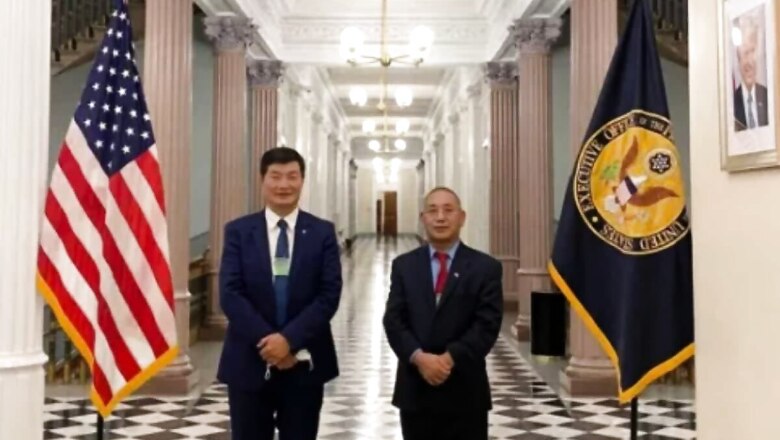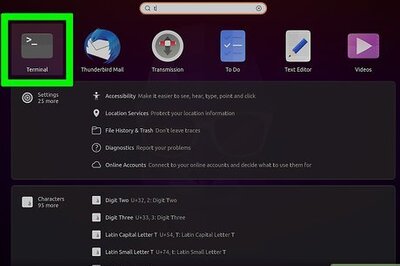
views
After making attempts for a decade to walk into the White House for a meeting with officials, Tibetan leader Lobsang Sangay finally managed to break through the barriers this year. With this, he said, not only has the United States recognised the Tibetan government-in-exile, the question of its autonomy, but most importantly touched on the hugely sensitive one-China policy.
In an exclusive conversation with News18.com while in Washington DC, President of the Central Tibetan Administration (CTA) Sangay said, “In the last 60 years, the White House has always said ‘allowing you to enter and inviting you inside will amount to acknowledging or recognising the Tibetan government in-exile’. Once you recognise that government, you raise the issue of status of Tibet, whether it is independent or not? It touches the one-China policy. So it was very sensitive.”
Sangay said the democratic system that his country follows, the office of the Sikyong or President of CTA, has also been recognised by the US now.
He said he does understand that timing has a role in this move, coming as it does after the spread of the coronavirus that originated in Wuhan, China, which has created massive health, economic and geo-political uncertainty.
“The trust deficit has increased manifold. Washington is relooking at its China policy. From cooperation, it is moving to competition, focussing on human rights for confrontation. Washington has decided it will call out China,” said Sangay.
This is not the first instance in recent months that the US has challenged the One-China policy. Intensified engagements with the Taiwanese leadership and the announcement that the US follows the One-China policy guided by the Taiwan Relations openly displayed Washington’s changed view towards Taipei. China reacted sharply both verbally and in action.
The Chinese foreign ministry spokesperson Zhao Lijian said, “The so-called “Taiwan Relations Act” unilaterally formulated by the US side and the “Six Assurances” it made to Taiwan severely violate the one-China principle and the three China-US joint communiques and basic norms of international relations and constitute gross interference in China’s internal affairs, which is completely wrong, illegal, null and void. The Chinese government is firmly opposed to them right from the start. The US should abide by the one-China principle and the three China-US joint communiques, rather than concocting something unilaterally.”
In September, during the visit of US officials to Taiwan, reports had suggested that Chinese aircraft crossed the Taiwan Strait midline in what was perceived as a warning.
A report released by US State Department in November also mentions Taiwan saying, “Beijing menaces democratic Taiwan, which it considers a renegade province, intending to reunify Taiwan with the Mainland — by force if necessary.”
This report also mentions the tension on the LAC. The report says, “The PLA recently provoked skirmishes along its disputed border with India, which killed dozens on both sides, and remains in a tense standoff with India’s military.”
Sangay also confirmed to News18.com that he was asked about the current situation at the Line of Actual Control between India and China. This as the Tibetan government-in-exile is based in Dharamshala, India.
Read all the Latest News, Breaking News and Coronavirus News here




















Comments
0 comment